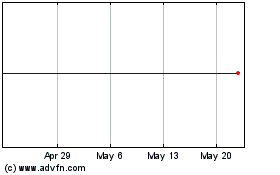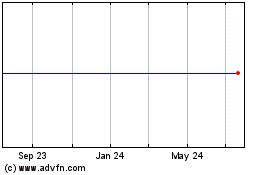Arm Stock Tanks as Guidance Misses Estimates
November 13 2023 - 4:49AM
Finscreener.org
Arm Holdings (NASDAQ:
ARM), the semiconductor
tech firm, released its first earnings report since going public,
surpassing analyst expectations with a significant uptick in sales
while doubling its profitable licensing segment within a
year.
Despite its impressive results,
ArmU+02019s stock dipped by over 5.5% in early market trading as
its revenue forecast failed to meet analyst
projections.
HereU+02019s a comparison of
ArmU+02019s performance against the market consensus as provided by
LSEG for the second fiscal quarter ending on September
30:
- Adjusted Earnings Per Share (EPS): $0.36 per
share
- Revenue: $806 million, against the expected
$744.3 million
For the upcoming quarter, Arm anticipates EPS in
the range of $0.21 to $0.28 per share, with revenues projected to
be between $720 million and $800 million. These figures fall short
of Wall StreetU+02019s forecasts, which forecast earnings at $0.27
per share and revenue between $730 million and $805
million.
Arm also reported a net loss of $110 million, or
11 cents per share, attributing the deficit to over $500 million in
one-time stock-based compensation costs following its IPO. Arm
projects that stock-based compensation expenses will reduce to
between $150 million and $250 million in subsequent quarters.
Overall, ArmU+02019s total revenue rose by 28% compared to the same
period last year.
What impacted Arm’s sales in the September
quarter?
ArmU+02019s technology is a
fundamental component of almost every smartphone, numerous PCs, and
a variety of other chip devices. The company reported that in the
quarter, over 7.1 billion chips based on ArmU+02019s architecture
were shipped.
The company generates revenue
through royalties—when chip manufacturers pay for the right to
fabricate chips that are compatible with ArmU+02019s designs,
usually as a fraction of the chipU+02019s selling price.
Additionally, Arm earns income by selling comprehensive licenses
for its chip designs, which allow chipmakers to save on development
time and resources. This income is recorded as licensing
revenue.
During the quarter, ArmU+02019s royalty revenue
amounted to $418 million, marking a 5% dip compared to the previous
year. Conversely, its licensing sales soared to $388 million, more
than doubling with a 106% increase from the prior year. This surge
suggests that Arm might be successfully upselling advanced
technology to its existing clientele, a development that analysts
are closely monitoring.
The increase in licensing revenue
was credited to a series of multi-year agreements with tech
companies, hinting at potential continued growth in this area.
However, Arm cautioned that the larger economic landscape could
impact the growth of future licensing sales.
In September, Arm transitioned to
a public company through an
initial public
offering. Prior to this,
it was a subsidiary of SoftBank, which had intended to sell Arm to
Nvidia before the deal was halted by regulatory bodies in 2022.
ArmU+02019s inception dates back to 1990, with a focus on crafting
technology suited for low-power chips.
Arm disclosed that tech giants
like Google, Meta (NASDAQ:
META), and
Nvidia (NASDAQ:
NVDA) are among the firms
leveraging its technology to create chips capable of artificial
intelligence processing.
Is ARM stock a good buy right now?
Out of the
24 analysts covering ARM stock, 16 recommend buy, seven recommend
“hold,” and one recommends “sell.” The average target price for ARM
stock is $61.86, which is 13.7% higher than the current trading
price.
Arvinmeritor (NYSE:ARM)
Historical Stock Chart
From Dec 2024 to Jan 2025

Arvinmeritor (NYSE:ARM)
Historical Stock Chart
From Jan 2024 to Jan 2025
